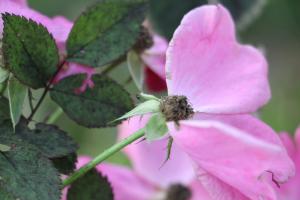Introduction
Plant parasites are organisms that have evolved to live off of other plants. They are a type of parasitic relationship that can be found throughout the natural world. These organisms are able to live off of a range of different plant species and can cause significant damage to crops and wild plant populations.
Types of Plant Parasites
There are a variety of different plant parasites that can be found in nature. One of the most common types of plant parasites are fungi. Fungi are able to penetrate the roots of plants and extract nutrients. Another type of plant parasite are nematodes. These small worms are able to penetrate the root systems of plants and feed on their tissues. Other common plant parasites include bacteria and viruses that can cause diseases in plants.
How Plant Parasites Spread
Plant parasites are able to spread through a number of different mechanisms. One of the most common ways that plant parasites spread is through insects. Insects such as aphids and whiteflies can transport plant parasites from one plant to another. Plant parasites can also be spread through contaminated soil or water. In addition, some plant parasites are able to spread through the air, which can make them difficult to control.
The Impact of Plant Parasites on Agriculture
Plant parasites can have a significant impact on agriculture. They can cause crop yields to decrease and can even lead to the death of plants. This can result in significant financial losses for farmers and can also impact the availability of food. In addition, plant parasites can make it difficult to control pests in crops, which can impact the overall health of the ecosystem.
Controlling Plant Parasites
There are a number of different methods that can be used to control plant parasites. One of the most effective methods is to use pesticides. These chemicals are able to kill plant parasites and can prevent them from spreading. However, pesticides can also have negative effects on the environment and can harm beneficial insects. Other methods of controlling plant parasites include crop rotation, which can help to reduce the buildup of parasites in the soil. Additionally, biological control methods can be used to introduce natural predators of plant parasites into an ecosystem.
Conclusion
Plant parasites are a common and persistent issue in the natural world. They can cause significant damage to crops and wild plant populations. However, by understanding how they spread and how to control them, it is possible to minimize their impact and protect our plant species.

 how many times do yo...
how many times do yo... how many planted tre...
how many planted tre... how many pine trees ...
how many pine trees ... how many pecan trees...
how many pecan trees... how many plants comp...
how many plants comp... how many plants can ...
how many plants can ... how many plants and ...
how many plants and ... how many pepper plan...
how many pepper plan...
































